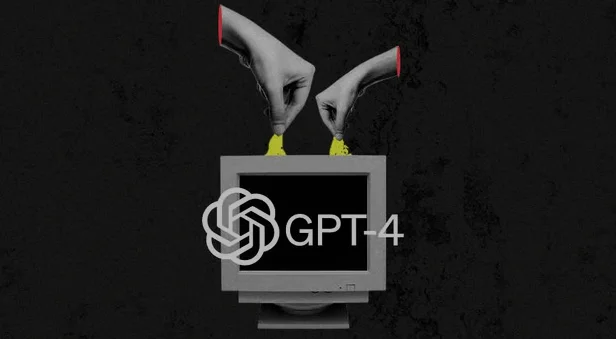Introduction:
The introduction of artificial intelligence (AI) into healthcare is an evolutionary process, the more recent breakthroughs in which did not cease to amaze us. Among the models, GPT-4 goes beyond the standard and can revolutionize clinical practices. In this article, we will go through the developments and applications of GPT-4 in healthcare and will see how it can change the diagnosis, treatment, and patient care.
Understanding GPT-4:

Thus, GPT-4, a series of the Generative Pre-Trained Transformer of OpenAI, is considered to be a revolutionary step in AI algorithm development. Emerging from family lineage, it expands its range of language understanding and becomes a better reasoner as well as a better contextual aware. With its millions of pages of medical literature, patient data, and clinical guidelines in its data bank, it can easily grasp the medical concepts and terms, and thus, it is a great addition to the healthcare field.
Diagnostic Revolution:
Diagnosis is among the most impactful ways it will improve healthcare as it is the capstone of medical practice. Through analyzing patient history, symptoms, and diagnostic tests, it can present clinicians new insights and different diagnoses as long as has not been linear before with high precision. The state-of-the-art language processing technology allows it to understand intricate medical data and produce a whole diagnostic report, which helps clinicians to make decisions quickly.
Personalized Treatment Plans:
GPT-4 achieved the highest grade in diagnosis, but not only did it go further than merely diagnosis; it succeeded also in the treatment process. Through the deep awareness of medical literature and patient information, it will provide the clinicians with the tools to devise treatment protocols aimed to be customized for each individual patient. it takes into account the genetic makeup, co-morbidities, and treatment response of an individual to enable the optimization of a treatment plan and the reduction of its adverse effects.
Enhanced Patient Engagement:
Among other functions, it acts as a tool to aid clinicians when making their diagnosis as well as helping patients to better understand their issues. Patients can use conversational interfaces and interactive applications to get insights into their conditions and treatments. These applications are made possible with the help of GPT, which also provides guidance on self-management strategies. This grants patients an appreciative manner of cooperating with medical professionals indicating their increasing participation in the health process.
Read Also: 5 Major Micron’s Role in AI and Machine Learning
Predictive Analytics And Preventive Medicine:
Beyond just being a powerful diagnostic tool, it is also essential in predictive analytics and disease prevention. This allows necessary health interventions to be taken on time, reducing the risk of illness. By analyzing extensive data sets and recognizing disease-related patterns, predictions about health outcomes can be made. These insights can then inform preventive measures to mitigate risks effectively. This approach, which is targeted at the prevention of conditions, sought to enhance the health outcomes of patients. It also aimed to save healthcare costs occasioned by some preventable conditions.
Ethical Considerations:
Though the pros of this new technology for healthcare are known to be huge, ethical considerations shall surely be appropriately addressed. The need for robust regulatory frameworks is driven by concerns about patient privacy, data security, and algorithmic bias. Additionally, it addresses the role of AI in clinical decision-making. Ethical guidelines are necessary to address these concerns and ensure the responsible development and deployment of AI in healthcare. Developing these frameworks and guidelines is crucial to address these complex issues effectively. Ensuring a balance between innovation and safeguarding patient rights is essential in shaping the future of AI in healthcare. Upholding patients’ rights and ensuring transparency and accountability in AI healthcare enhances trust among doctors and patients. This fosters a conducive environment for the widespread acceptance of AI-driven healthcare solutions. Ultimately, it paves the way for improved healthcare outcomes and patient satisfaction.
Conclusion:
The development of GPT-4 in healthcare signals a new age. This age will be marked by unmatched progress in diagnosis, treatment personalization, patient engagement, and preventive medicine. The fact that AI’s potential to change clinical practices for the better is undeniable. However, this does not mean that important ethical issues like patient privacy, data security, and algorithmic bias can be disregarded. They have to be taken into account and should be regulated through the appropriate legal and ethical framework. The adoption of AI-based solutions in healthcare is crucial for improving health outcomes and fostering trust between doctors and patients. This emphasis on enhancing health and trust underscores the significance of integrating AI in healthcare. I believe that careful mixing of AI technology will greatly benefit patient care. It will also ensure the ethical use of AI in the medical field.

